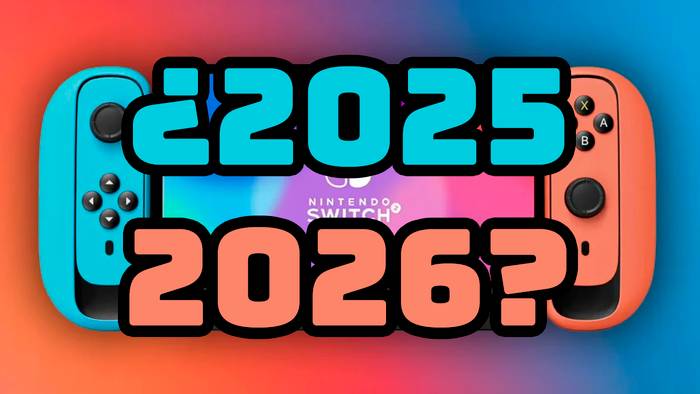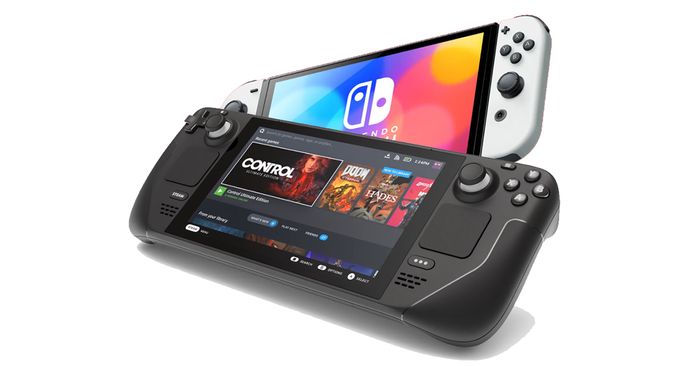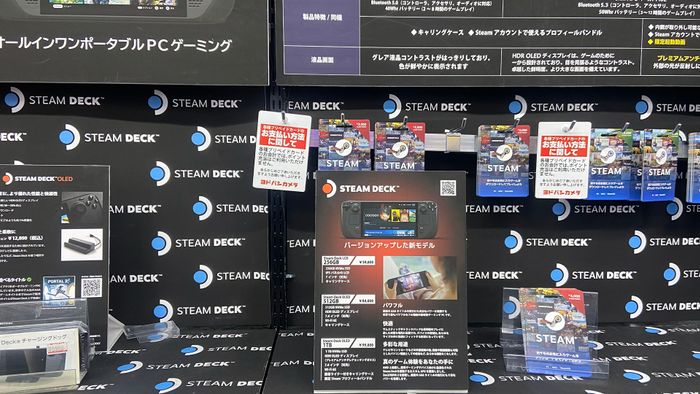
Why I'm not expecting a new console from Nintendo until Summer 2025 at earliest
Ever since rumors of the Switch Pro started popping about several years ago, I’ve been making the following claim:
We won’t be having news of a new system from Nintendo until 2023 at earliest.

We’re reaching spring of 2024 now, and so far we’ve got nothing other than the fact that people call the new console “Switch 2” or “Switch Attach” as of very recent. So my prediction seems to have been correct. And looking back, it makes perfect sense.
In this post, I will make two slightly bolder claims:
- We will not hear anything about a new gaming system from Nintendo until at least autumn this year, with a release in summer or autumn 2025 at earliest.
- A far-fetched claim, but I believe that the new console will not be backwards-compatible with the Switch, most likely a home console.
Why? In short, because the Nintendo Switch is still very profitable for the Big N; why kill the cash cow now?
Recently flagship released games
Last year, we had the release of two flagship Nintendo Switch titles: The Legend of Zelda: Tears of the Kingdom and Super Mario Bros. Wonder, two critically acclaimed titles, having a very high chance of becoming best selling games.
In terms of development and investment, it wouldn’t make much sense to release these titles at the very tail end of a console’s lifespan. At least, it would make sense to wait at least 1 year before announcing something related to a new system.
The only three situations when it would actually make sense to do this are:
- The games would also be released as launch titles for the new console: This has already happened twice in The Legend of Zelda series: One with Twilight Princess (GameCube & Wii) and Breath of the Wild (Wii U & Switch). But this is not the case with the recently released games. The only game that we know of that could get this treatment is Metroid Prime 4.
I honestly would love to see Metroid Prime 4 on both Switch and the new console, but even with Metroid Dread’s success, it would be extremely risky for Nintendo to rely the launch of a new hardware on a minor IP.

- The new console is backwards compatible with the Switch. I don’t believe this is going to be the case either for the reasons below.
- The game will have an eventual release on the new console: However, this is the riskiest option and can split the target audience. It would be much easier to convince them to transition if it were a launch title anyways.
The current Nintendo Switch business model
Since early 2020, Nintendo has adopted a business model for the Switch which basically consists on “having all games in one system”. And it turns out to be very lucrative.
This is part of the reason why there have been so many re-releases for the Switch, even for first party games:
- Ports of 3DS and Wii U games: Like Yoshi’s Wooly World, Captain Toad Treasure Tracker, New Super Mario Bros. U Deluxe and of course, Mario Kart 8 Deluxe, among others.
- Remasters of previous generations: Like Metroid Prime Remastered and TLoZ: Skyward Sword HD.
- Remakes of previous games: Like Link’s Awakening DX. Nintendo didn’t make many more of this category, but the Switch is littered with third party remakes.
And let’s not forget the Nintendo Switch Online service and its Expansion Pack, which brings older system games thanks to the use of emulation. The library of available games keeps growing even through this year.
Think about the time Nintendo closed the eShop for the Wii U and 3DS. Even though the legacy games library on Switch isn’t very big, it’s clear that they wanted people to move on from these two older systems.

While this has been raising many eyebrows about whether Nintendo is doing anti-consumer business practices, the matter of the fact is that people still keep buying these software reissues, and some even outsell the originals, like Mario Kart 8 and Pikmin 3. Whether we like it or not, it’s working out well for Nintendo.
Whom is the Nintendo Switch truly competing with?
Previously, the Switch competed with PlayStation 4 and Xbox One. But that was one generation ago, and new consoles have been released since then. So what is the Switch competing with now?
At first you might assume it’d be the Xbox Series X and the PlayStation 5. But that’s wrong. Those behemoths are basically out of their league.
Since their shift of the business model —which seems to have been timed with the releases of the newer systems— the Switch has changed its strategy, and with that the console also changed its competitors.
It all points me out to one surprising yet understandable conclusion.

The Steam Deck, a handheld game system developed by Valve, is often compared with the Switch for being very similar in control layout and features. Heck, Japan is already selling Steam Deck hardware right next to the Switch aisles at electronics stores!

How on Earth would Nintendo overlook this!? It’s right at their front door!

But unlike the Switch, the Steam Deck is more of a PC and as such has a mostly open operating system— its core parts are still restricted to prevent people from accidentally destroying it. This means that you can easily install other apps besides games, including emulators.
Remember when Nintendo sued Tropic Haze over the Yuzu Nintendo Switch emulator? While there are other emulators around, Yuzu has been one of the more notorious ones and has been reported to have best performance on the Steam Deck compared to other emulators, making it an actually serious competing point against the Switch.
At this point, they could just sue Valve for allowing the usage of emulators on their platform altogether, right?
Except… That’s almost what they did last year.
On late May 2023, Nintendo issued a DMCA takedown notice on Valve when it was announced that the Dolphin emulator to play GameCube and Wii games would be released on Steam, which prompted Valve to take down Dolphin from the store before it was even released.
Now, there could be more reasons for this legal action, and even though email exchanges tell that Valve had actually contacted Nintendo prior to this about the emulator being released on Steam, the point remains that they may have threatened Valve with a lawsuit. Knowing that Valve would either have no legal grounds to challenge the lawsuit nor —more likely— rather not be interested on such a legal fight, capitulating and removing Dolphin from the platform could also have been a decision made on interest to maintain the status quo on emulation on Steam Deck, because emulation conflicts with Nintendo’s business model at this time of “one system for all games”, and Steam Deck advocates agree on one thing about it:
Emulation on Steam Deck is fantastic (26:31)
Now, the Steam Deck is somewhere in the middle of its lifespan. Valve has already announced that they’re working on the next generation of the console, but it’s not expected to come soon. Some speculate somewhere in late 2025 to 2026, so the Switch still has a grace period of about two years minimum before being overtaken by the next Deck, which should be enough to continuing business with their current console for at least a year with no unparalleled competitor on sight.
Relegating the Switch to a portable market
In these circumstances, where the Switch has a very reliable business model and is unlikely to be seriously disturbed sooner rather than later, I don’t really see why would Nintendo decide to kill the Switch if they still have ways to milk more out of it. And while it’s about to outlive the Wii in terms of formal continuity, the Wii kept selling until 2018 at latest.
In fact, one of the last games to ever be released for the Wii was freaking Just Dance 2020, for a console released all the way back in 2006! And considering the sales figures for the Switch (the second best selling console, surpassing Game Boy and Wii) and the fact that it’s the only console they have currently, one can make an educated guess that the Switch still has potential to stay around.
Their current business model is very much compatible with their very large install base, so why the risk of killing it with a console that supports Switch games?
One point that people seem to forget is that as game consoles modernize, they grow more complex in how they deliver their software. If you make your console backwards compatible with your previous one, you have to specify how much you want it to be compatible, and make compromises based on that.
Would you support digitally purchased games? Would you allow using the previous system’s controllers? What about Internet services like online play and game updates?

Backwards compatibility could also bring you into a catch-22 situation if your install base is too big: The more you dedicate towards it, the more limited your console will be in terms of innovation, and the more conflict you can create on people moving over to your newer console because it’s not innovative enough or too similar to the currently existing one.
That’s why I believe that Nintendo’s new console might probably be a home console entirely different from the Switch, rather than a Switch 2/Pro, and could make one or even two generational leaps, and the Switch would be relegated as a portable console. The portability of the Switch is unquestionable, and Nintendo needs to keep up on the latest generation of consoles should they want to stay on the home console market.
But of course, this is Nintendo we’re talking about, and Nintendo loves to make odd choices and it manages to keep us surprised with whatever they cook on that Japanese oven of theirs, so I might as well be completely utterly wrong on all of this. We’ll definitely see more information about this after the fiscal reports in May.


